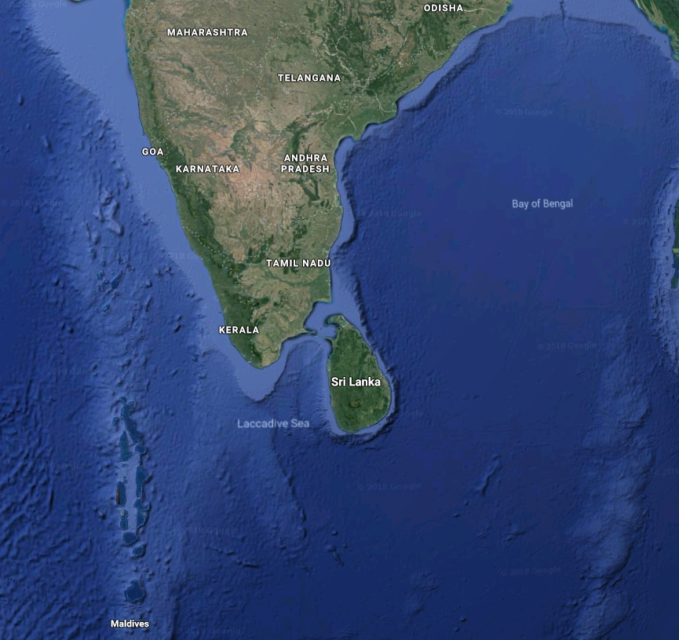At Strategy Page, a useful primer on recent Chinese moves to set up another facility in India’s sphere of influence, this time in the Maldives:
China and India are threatening each other over who should do what in Maldive Islands just south of India. This conflict heated up at the end of 2017 when China and the Maldives signed an agreement that allowed China to build and operate a “Joint Ocean Observation Station”. This monitoring station would be built on an atoll that is the closest part of the Maldives to India. Opposition politicians in the Maldives claim China has already taken possession of sixteen small islands and that China has been investing heavily in the Maldives economy and influential politicians.
This agreement was apparently obtained by Chinese bribes and assurances that there would be more Chinese investments. Meanwhile the Maldives government is in chaos over elected officials and the Supreme Court judges disagreeing about who should actually be in charge. The tiny (248 square kilometers spread over 1,192 coral atolls spread over 90,000 square kilometers of water off the southern coast of India) nation has a mostly Moslem (98 percent) population of 430,000 plus 100,000 foreign workers (a third of them illegals). Most of the population is concentrated on about 15 percent of the islands. The per capita income is about $10,000 and most of it is based on tourism followed by fishing. Many young men have been attracted to Islamic terrorism but there is not much religious violence in the Maldives. While a democracy the religious parties and military have kept the government in turmoil by asserting decidedly non-democratic powers.
Over the last decade India has become alarmed at growing Chinese investment in neighboring countries (like Sri Lanka, Maldives and Bangladesh). Chinese firms are more experienced and effective at arranging these foreign investments and India’s smaller neighbors feel more comfortable with investment from distant China rather than neighbor (and sometimes big bully) India. The Chinese economic investments often have military implications, like China building satellite ground stations in Sri Lanka, a major port in Pakistan and now an “Ocean Observation Station” in the Maldives.
China had earlier persuaded the Maldives to join its OBOR (One Belt, One Road) project. The Maldives would be part of the “maritime road” going from Chia, through the newly annexed South China Sea and into the Indian Ocean and sea routes to the Persian Gulf the Suez Canal and East Africa and beyond. The Maldives government has always been unstable and Islamic radicalism is still an issue there. Islamic terrorists were never able to establish themselves in the Maldives, although they tried. In 2007 three men were sentenced to 15 years in prison for carrying out a terror bombing attack three months earlier that wounded a dozen tourists. The Islamic radicals were intent on destroying the tourist industry, which is the main source of income in the Maldives, because they saw it as un-Islamic. Most people on the Maldives did not agree with that, and justice was swift. However, ten Islamic radicals responsible for planning the bombings fled the country the day before the attack and are being sought in Pakistan.




